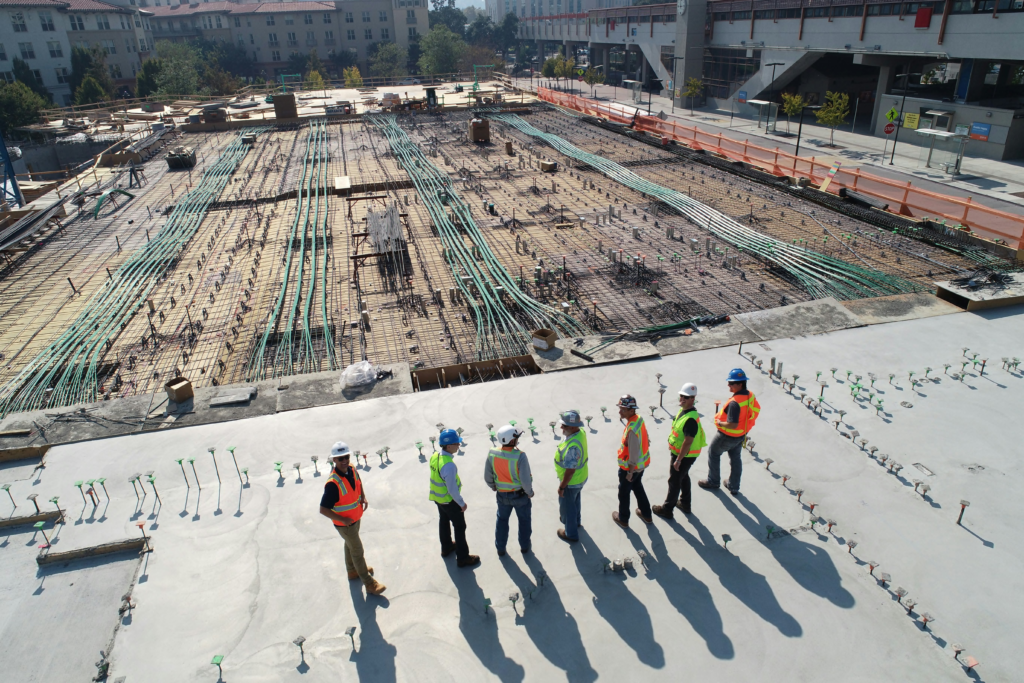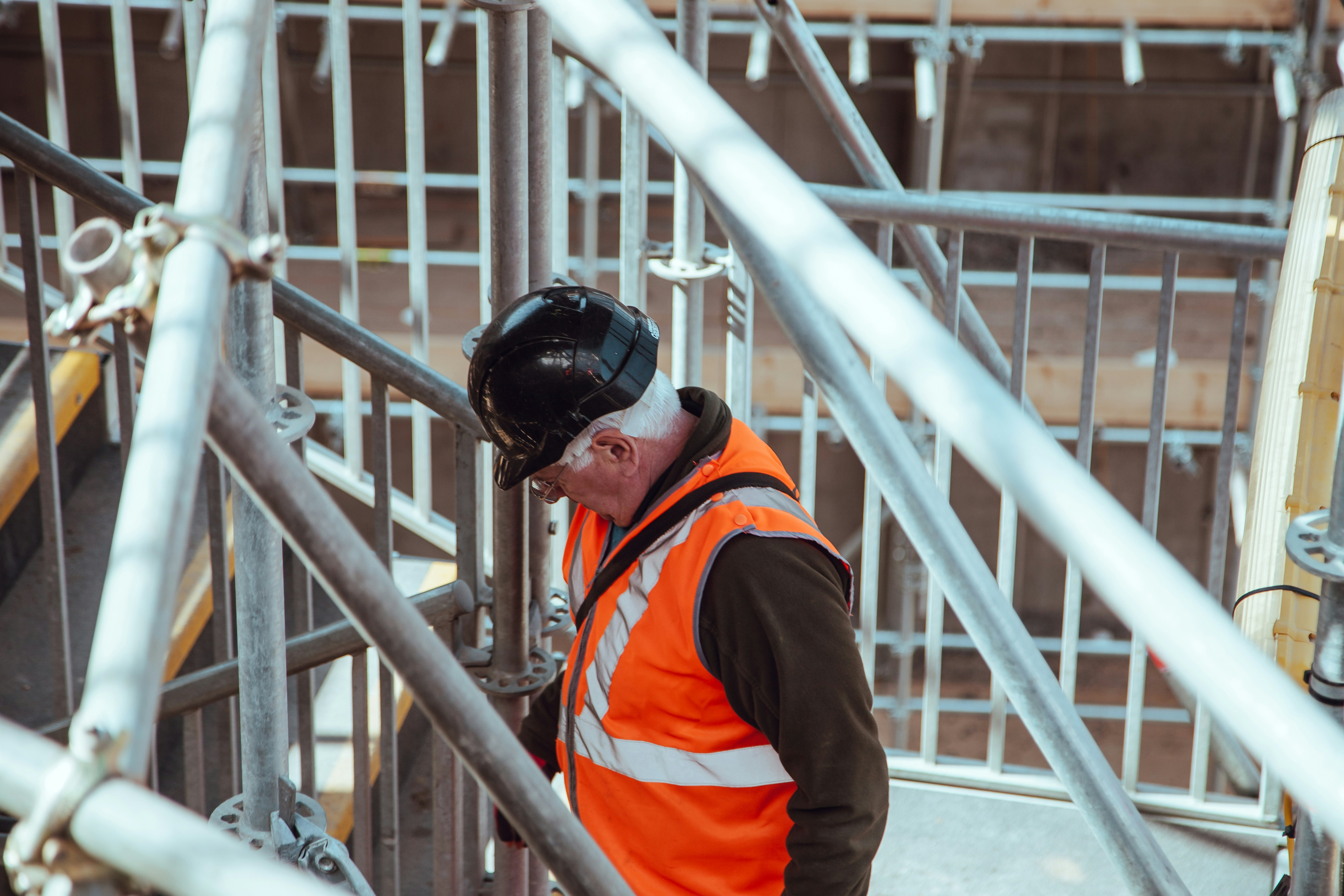Managing a construction project is the combination of practical skill, leadership, and strategic ideas. Be it a small remodeling or a big construction site, a Construction Project Manager is always imperative for a project’s success. The total number of mobile elements like people, durations, amounts of money, and hazards are quite many, most of the times, it tends to be encumbering.
Nevertheless, handing over a project as anticipated and making sure that it is within scope and time can be enhanced through the use of project management. Tips and best practices will be highlighted in this blog post regarding how one can excel in construction project management. These include improving communication and use of appropriate technologies and performing good evaluation after the project to ensure success of the next construction project among others. Let’s get started!
Understanding the role of a Construction Project Manager
Construction Project Managers (CPM), in other words, are the overseers of the project throughout its course, from the inception stage to the completion stage. In such a manner, the CPM is actively involved in the entire process while ensuring that the project is successful. In addition, they outline the vision of the whole project, manage financial resources, and take care of timeframes.
In this role, communication is an essential component. The Construction Programme Manager has daily contact with the architects, contractors, and stakeholders of the project or program. If relationships are well established, collaborating becomes easy as conflict is less likely to arise.
Problem solving skills are also important in the work environment. Aspects such as climatic conditions or lack of resource occur on site and a well-qualified manager handles these challenges effectively.
Moreover, the CPM takes care of cost allocation and financing arrangements. Sticking to the allocated budget on the project without compromising on the quality is a hard but important task.
The construction project manager is regarded as the glue that holds a particular construction project together. With so many moving parts, strong leadership is critical for bringing all the elements together for a unified purpose.
Significance of communication in Construction Project Management

In most cases, it has been said that communication is the lifeblood of construction project management. A quick exchange of information involving members of the team, stakeholders, and clients makes the working process more efficient.
Such reminders as periodic updates make it possible for everyone participating in the project to speak from the same page. They help to coordinate the parties so that they can manage their anger and meet deadlines. Even the smallest known miscommunication can cause expensive delays or mistakes.
It’s very important to create a culture where people are not afraid to express their ideas about anything. This is where active listening matters; it instills a degree of confidence and nurtures teamwork across varying factions.
The use of a combination of such communication methods as meetings, emails, and project management tools, helps a lot in improving communication. This diversity helps to address different needs and makes sure that all the critical information is communicated to all the relevant parties.
Furthermore, the ability to communicate well helps in enhancing relationships with subcontractors and suppliers. Such strong relationships will enhance the chances of getting better deals and smoother activities throughout the project.
Efficient planning and scheduling approaches
Efficient planning and scheduling can be tagged as the paramount activities in the management of construction projects. In such a case guide, the work and its scope should be well articulated with respect to all the involved stakeholders.
Begin by creating a comprehensive project schedule. Map out critical dates and deadlines that are used to guide activities. Use timelines such as Gantt charts to demonstrate changes in status over time to keep everyone focused on the objectives.
Plan to have extra days in your program. Since delays are a characteristic of construction processes, it is essential to have additional programs for contingencies where unforeseen interruptions will occur.
Work on a task based on the relationship of that task to other ones. Knowing the precedence of certain activities cuts down on needless delays in completing work.
As the project advances, ensure that you revise your schedules from time to time. Because of this flexibility, teams are enlightened about developments during the project and pace is maintained during the construction stages. This kind of active planning involves the engagement of the members of the teams and therefore creating ownership of the timelines.
Costing and cost control measures
In the construction project management, budgeting is not all about the actual dollar spent. It entails calculating the probable expenditure plus budgeting for unforeseen circumstances.
The first step is to prepare a detailed budget in advance that includes materials, labor costs, price of permits, and a sum to cover the risk of unforeseen expenses arising. Make sure that every costs have been detailed into its own category in order to comprehend the outflow of money.
Continuously evaluate between the expended amounts and the amounts budgeted before the project. It makes chances of addressing variances promptly. Such a task is best performed using software created specifically for that purpose so that chances of error are minimized.
Also, add the cost of risk management in the form of reserves within the financial estimates. These reserves will be useful in covering unanticipated expenditures without holding the project ransom.
Be ready to give updates to the stakeholders on events related to the finances. Such measures will enhance trust in the management and make it easy for the finances to be allocated in order to address problems as they arise.
Lead the staff in making savings suggestions during each stage of the project. When all parties are involved, there is a better chance of finding savings that improves service delivery.
Dealing with risks in construction projects
Of great importance in the success of construction projects, risks must be handled. Proactive identification of these factors from the beginning can save a lot of time and funds later on.
Begin through a risk management process as low as the planning stage of the project. This must also include the evaluation of the site, the supply chain, and legal factors that would affect the timing and costs.
After marking out the salient risks, come up with risk treatment measures as well. Make allowances to deal with unforeseen slowdowns or costs that may come about. Watt et al were right in emphasizing flexibility. If a change is expected then it makes life easier when it occurs.
Always keep an eye on your risk management plan, as well as during all active phases of the project. It will be a good practice to have as many eyes on the project as possible in order to receive the information concerning newly accumulating risks.
In any type of construction project, it is necessary to have such a culture inside the construction site, that allows each and every individual to have the authority to voice a concern or a complaint irrespective of the level of hierarchy they may be in.
Team management and leadership skills
In construction management, it is important to effectively utilize and manage the team. Understanding how different people come together to work towards different goals is key to harnung these talent sets. This excitement could come in many forms, leading to new ideas and a more effective way of mahi ed future processes.
Asset management and leadership are also important aspects which are combined. Leadership is not about telling people what to do, it’s about motivating people to perform. This is the reason as to why great leaders ensure that every member of their team is trusted and that the environment is built around collaboration.
Fostering constructive relationships within teams will resolve arising issues much more effectively. This will also create a platform where constructive feedback can be exchanged without the fear of any reprimand.
When there are clear expectations, it is easier to delegate tasks to the most appropriate person or role. It is still wise to consider the fact that delegation of authority throughout the team can increase the effectiveness of a particular activity or a task.
Nonetheless, development doesn’t get finished here. Training allows team members to achieve necessary skill levels, but it should also be understood that ambition for personal development has to come from the team members themselves, as it creates positive team dynamics beneficial for success.
The role that technology plays in the management of construction projects in the current world cannot be underestimated
The use of technology has brought opportunities in efficiency right from project conception to its execution.
With project coordination software, various tasks can now be done online, allowing for collaborative work across borders. It improves operational visibility and keeps everyone well informed.
Mobile industrial technologies have shaped how field personnel make issue updates as well. That kind of engagement reduces the likelihood of downtime.
Drones deliver aerial perspectives of work sites so that job supervisors can get additional monitoring from them. It reduces the onsite dependency of managers, allowing them to track the work in progress through their gadgets.
Building information modeling can also be used later in the project development phase to build a better picture of the assets being developed. This helps in avoiding future potential trade conflicts, which can avoid waste later.
Using such technologies gives construction project managers the ability to advance their workflows and ensure a successful project at each of the phases of its execution.
Descriptive judgements for the achievement of the successful completion of a project
The coherent success of any project relates much to the clarity of the objectives. The objectives should however first provide an idea of the focus and tools to be used in attaining the target.
It is also important to check progress regularly. Encourage minor sessions on tasks completed, problems faced, and achievements gained. Such moments help to enhance all responsibility among team members.
All level of communication should be encouraged. Inspire people to share thoughts or grievances freely as they arise. Such openness can help come up with creative and improved ways of working together.
Be flexible at all times in the course of the work. Problems are always bound to come up in construction projects; when such problems arise, being flexible makes sure that your team can switch gears as appropriate and still maintain the tempo.
Appreciate all input from every member of your team. This also encourages team spirit which carries on to ensure that future projects are also successful.
Recommendations for project completion evaluation and further development
An evaluation of the post construction tasks is necessary as it helps in diagnosing the strong points and the weak points in the processes of construction. This should be followed with the collection of information from different individuals such as the team, the clients and the subcontractors. Their feedback offers a broad understanding perspective regarding the successes and failures.
Capture all the objectives that were not achieved in order to update the objectives that will be used in future projects. This reduces the chances of making the same error while progressing on successful tactics.
The use of performance indicators may also be useful in improving assessment. Use timeframes, planning of expenses, and supervision of objective indicators as areas for action.
Foster a culture where individuals thrive on feedback. This promotes invention and improvement in learning within the group.
Set up a review process where after a project is completed its performance and areas of improvement are assessed and notes are made to guide future projects. Such a persistent approach will help make your construction project management best practices sick over time.
Conclusion
Construction project management is a complex activity that is a combination of numerous skills, many strategies and many tools. Knowing what is expected from a construction project manager and paying attention to communication lets you build the necessary support for the work. Equal attention must be put on planning and scheduling as well as budgeting and cost control mechanisms to monitor the effective deployment of resources.
Proper risk management approaches will also help to protect your projects from many unforeseen adverse factors. Good managerial skills in team management will enhance teamwork and also enhance the morale of the workers. There is a need to be able to adopt new trends such as project management in order to increase efficiency in processes, monitoring progress as well as stakeholder engagement.
In order to effectively complete the projects, it will be useful to be organized and remain open to changing some aspects of the project. Post project appraisals make it easier to identify other areas that could be improved upon in the next task.
Having these tips in mind, you are ready to face the challenges associated with construction project management. Through your adherence to best practices, not only will the outcomes be improved, you will also add value by becoming a leader in this field.



